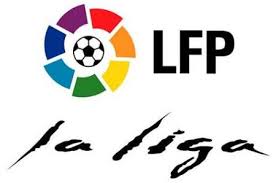By Andrew Warshaw
December 17 – Seven Spanish clubs, including Real Madrid and Barcelona, could be investigated for allegedly obtaining illegal state aid or loans in breach of European Union regulations.
Both the clubs and the government will have a month to respond to the European Commission charges, with Spanish foreign minister Jose Manuel Garcia Margallo insisting sanctions would be strongly opposed. “The government will fight to the last to defend Spanish clubs because they are also part of the Spanish brand,” he declared.
Barcelona’s spokesman Toni Freixa told Spanish media that the club’s business structure was in line with Spanish law. But despite being one of the most popular leagues in the world, Spanish football is suffering from a serious financial imbalance, fuelled by the biggest brands continuing to sell their own TV rights to the detriment of the have-nots.
Altogether the 20 clubs in La Liga have combined debts of about €3.5 billion, while 22 of the country’s 42 clubs in the top two divisions have been placed in administration over the past two years.
Obtaining hefty tax exemptions helps the alleged culprits buy up the best players – hence giving them an unfair advantage against European rivals. In response to an official request from its Ombudsman yesterday, the European Commission said a decision whether or not to proceed with an investigation over whether the tax rate imposed on Real Madrid, the FC Barcelona, Athletic Bilbao and Osasuna complies with European law will be discussed at a meeting tomorrow.
The European Ombudsman Emily O’Reilly, told the European Commission to stop delaying a decision on whether to open proceedings against Spain over the alleged unfair tax advantages for certain Spanish football clubs – a complaint originally made four years ago by investors in other European football clubs.
The clubs suggest that the Commission’s inaction might be linked to the fact that the Commissioner responsible supports one of the football teams in question and was a Minister in the Spanish government that decided on the tax advantages at the time.
The complainant says that the tax advantages could now amount to several billion Euro and that they were granted at a time when the Spanish government was requesting hundreds of billions of Euro from Eurozone taxpayers.
“As far as I know there was nothing illegal,” said Margallo. “But I am concerned about the prejudice that the clubs may suffer.”
Any proceedings would take months to conclude but if the clubs are found guilty, they would have to pay back any monies deemed unlawfully obtained.
Freixa said any probe would be baseless since Barca had “never received any type of public aid.”
And the Spanish league said in a statement that it “wants to publicly show its unconditional and absolute support for the clubs and affiliated managing institutions in general and those under investigation in particular.”

